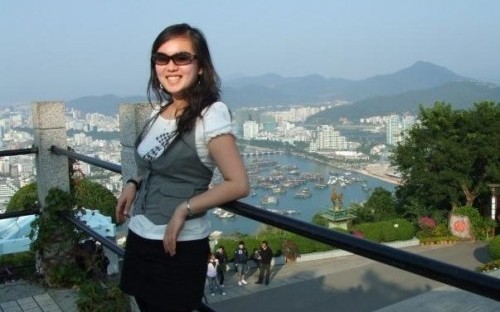Born in Wenzhou, China and brought up in Europe, Subin landed an internship with French renewable energy giant Veolia Environment in China last September. Six months later she returned with a new perspective that has surprised a few.
Having lived in Spain and France, the 22-year-old believes her language skills and the ability to understand both western and Chinese culture will help her secure a position in a multinational company in China.
While fellow classmates enjoy graduation parties and the Paris “wedding season,” Subin has been on the internet applying for jobs since completing a first degree in International Business Management three weeks ago.
“A lot of my friends cannot understand this,” she says. “But with the European market not moving forward, I think China is the future.”
While their domestic market stagnates, business is booming for many French firms in China. Groupe Danone’s market share in dairy products is as high as 40 per cent in some parts of the country, and Peugeot Citroen is aiming to shift a million cars by 2015.
French multinationals have long offered home-grown talent competitive salaries to work overseas. But in the recession local Chinese hires are looking more attractive.
“Over the years, a lot of Chinese students have come to France to either get an MBA or gain work-experience,” says Subin. “When they go back to China, they immediately got targeted by French companies who want to do business there, because their salaries are more affordable and they can do a good job as well.”
The only student in her 150-strong class to venture to China last year, Subin started her internship in Veolia's fresh water treatment division in Urumqi, a city that hit the news recently as the scene of ethnic violence. She worked on purchasing and legal issues.
Subin observed the cultural challenges facing French companies when supermarket chain Carrefour was subject to a boycott after the Dalai Lama was granted honorary citizenship of Paris. What most French people viewed as a “spiritual event” was “misinterpreted” by Chinese people as a “political message,” she says.
After four months in Urumqi, Subin moved to Veolia's Beijing office, where she was trained in the company's IT department. At that stage, the concept of working in China became more appealing: “Since their Beijing branch is a joint-venture with only five foreigners there, it gave me a huge advantage in terms of communicating and liaising with different people both internally and externally.
“I got along really well with my colleagues at work,” she adds. “They think of me as being mature for my age and detail-oriented. I'd like to think they were impressed by my ability to speak various languages which enabled communication… especially with local Chinese colleagues.”
Veolia Water is a major player: the firm was recently won a 30-year contract to supply three million people with drinking water in Tianjin, one of China's fastest-growing cities.
However Subin wants to work in a culturally richer city like Beijing: “Beijing has fantastic business opportunities as well as being the cultural capital of China: [if I work there] it will help me to find my roots and origins.”
Though she hasn’t found a job yet, Subin is probably onto a good thing. According to a report by consulting firm Mercer, about 35% of companies registered in China would like to hire more Chinese returning from school abroad this year.
However restricting her search to French multinationals may not be such a great idea. Some experts argue that French companies need to adjust their style abroad. Wang Jiann-Yuh, head of the France-China Committee at the largest French employer’s union, told The Economist that French business people can be impatient, arrogant, and overly focused on short-term results.
RECAPTHA :
b3
82
05
f3







